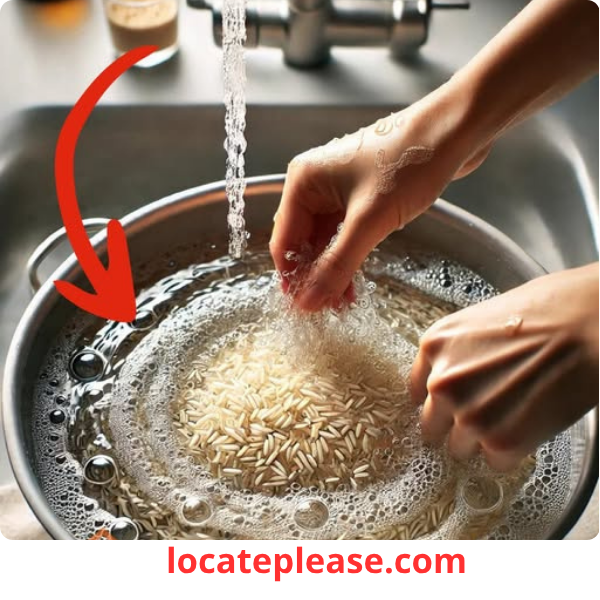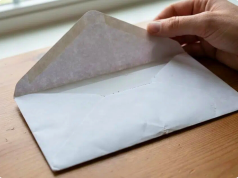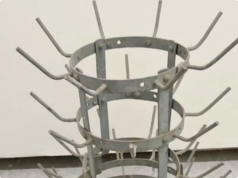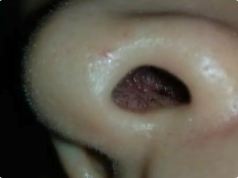For generations, many of us have been taught the same kitchen ritual:
👉 Rinse the rice before cooking.
We’ve done it out of habit, taught by our mothers and grandmothers — a routine as automatic as boiling water.
But what if this long-standing practice is doing more harm than good?
Contrary to popular belief, washing rice before cooking is often unnecessary — and in many cases, it’s actually a mistake.
Here’s why experts now say you should stop rinsing your rice — and how skipping this step can actually improve your meals and preserve vital nutrients.
Why Washing Rice Is Often a Bad Idea
❌ 1. You’re Washing Away Nutrients
Modern rice — especially enriched white rice — is fortified with essential vitamins and minerals like:
- Iron
- Folate (B9)
- Thiamine (B1)
- Niacin (B3)
These nutrients are often added to the surface of the grain during processing.
When you rinse rice under running water, you’re literally washing away these vital nutrients, reducing the nutritional value of your meal.
💡 Fact: Up to 60% of surface nutrients can be lost when rice is overwashed.
❌ 2. You’re Altering the Texture — Often for the Worse
Rice contains starch, a natural carbohydrate that plays a key role in how rice cooks and behaves.
- Starch helps rice grains absorb water evenly and develop the right texture.
- When you rinse rice, you strip away the outer layer of starch, which can lead to:
- Drier, flakier rice
- Uneven cooking
- Loss of natural creaminess (especially important in dishes like risotto or sushi)
🍚 Fun fact: In traditional Japanese and Italian cooking, the starch in rice is intentionally preserved to achieve the perfect sticky or creamy consistency.
❌ 3. It’s Not Needed for Cleanliness — Modern Rice Is Already Clean
One of the main reasons people rinse rice is to remove dirt, dust, or debris.
But here’s the truth:
✅ Commercially processed rice is already cleaned and safe to cook.
The powdery residue you see when rinsing? That’s loose starch, not dirt.
And as for bacteria or contaminants:
- Rice is a dry, non-perishable food — not a breeding ground for bacteria
- Any potential microbes are killed during cooking by high heat
So, no — you don’t need to rinse rice to make it “safe.”
When You Should Rinse Rice — The Exceptions
While the rule is: don’t rinse, there are a few exceptions:
✅ 1. Sushi Rice or Sticky Rice
- If you want very sticky rice (like for sushi or bento), rinsing helps remove excess surface starch that can make rice too gummy.
- Rinse gently 1–2 times until the water runs slightly cloudy — not clear.
✅ 2. If You Bought Unprocessed or Imported Rice
- Some artisanal or imported rice may have talc, dust, or even polishing agents.
- In these rare cases, a light rinse is acceptable — but never soak or scrub.
✅ 3. If You Prefer Very Dry, Separate Grains
- For dishes like pilaf or biryani, some chefs rinse rice to reduce stickiness.
- Even then, one quick rinse is enough — not multiple washes.
Types of Rice and How to Cook Them (Without Washing)
|
Long-grain white rice
|
❌ No
|
Fluffy side dishes, steamed rice
|
|
Basmati rice
|
✅ Light rinse only
|
Fragrant dishes, biryani
|
|
Jasmine rice
|
❌ No
|
Thai cuisine, everyday meals
|
|
Arborio (risotto rice)
|
❌ Never
|
Creamy risotto
|
|
Sushi rice
|
✅ Light rinse
|
Sushi, onigiri
|
|
Brown rice
|
❌ No (may rinse to remove dust)
|
Hearty bowls, salads
|
🔥 Pro tip: For best results, soak brown rice for 20–30 minutes instead of rinsing — it improves texture and reduces cooking time.
Better Than Rinsing: How to Cook Rice the Right Way
- Measure rice and water (typically 1:2 ratio for white rice)
- Skip the rinse — unless it’s one of the exceptions above
- Soak (optional): 15–30 minutes for fluffier rice
- Cook on stove, rice cooker, or oven
- Rest 10 minutes after cooking — this makes rice fluffier
✅ Result: Perfectly cooked, nutritious, and flavorful rice — every time.
Final Thoughts: Honor Tradition — But Trust Science
We honor our grandmothers for passing down generations of kitchen wisdom.
But times change.
Food processing improves.
Science evolves.
And today, we know that washing rice is often unnecessary, wasteful, and counterproductive.
By skipping the rinse, you:
- Keep nutrients intact
- Improve texture
- Save time and water
So the next time you open that bag of rice…
Pause.
Resist the urge to rinse.
Because sometimes, the best way to cook rice is the simplest:
👉 Just add water — and let it do its thing.
No wash. No waste. Just perfect rice.






